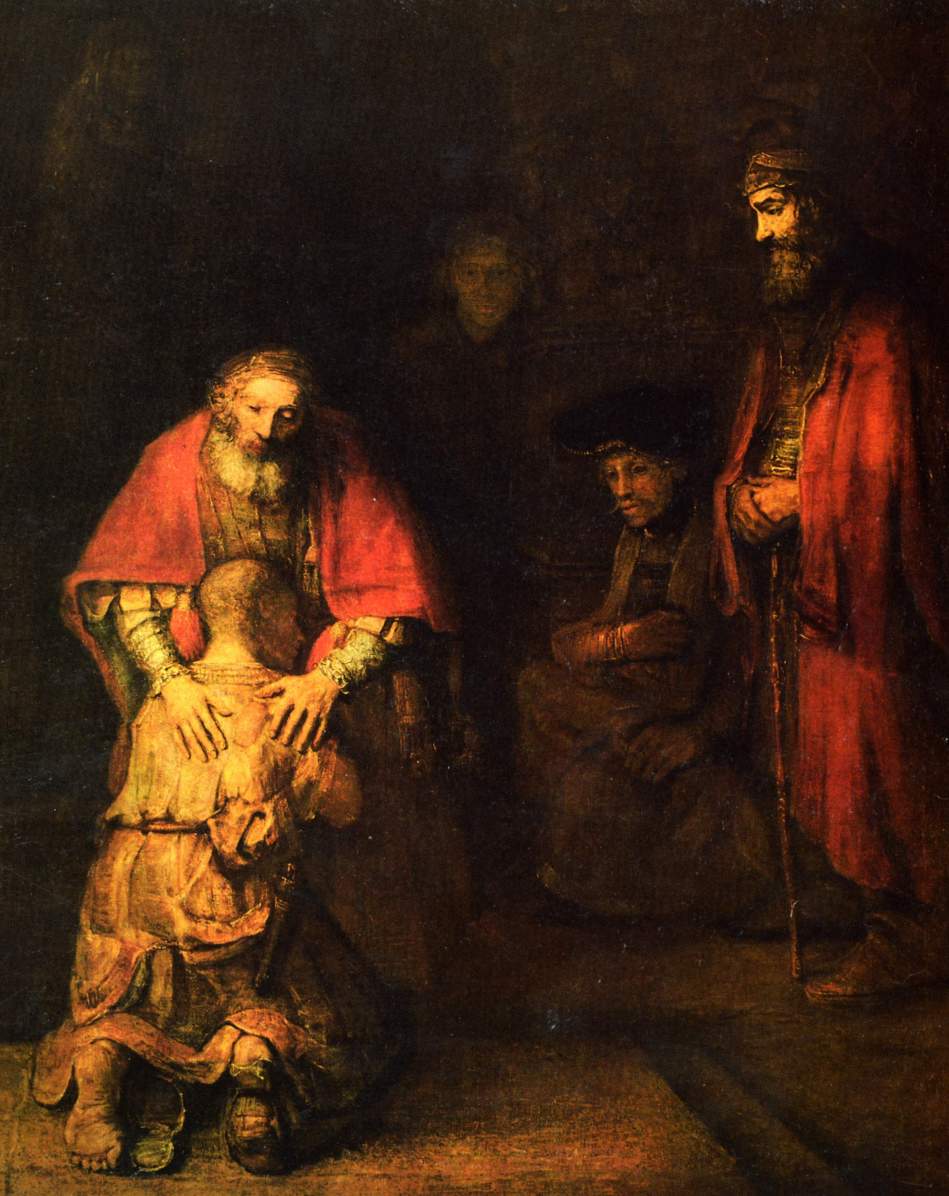An Insight from Nikolai Stavrogin’s Story: Part Three in a Series
October 31, 2011
Love bade me welcome
By George Herbert
Love bade me welcome, yet my soul drew back,
Guilty of dust and sin.
But quick-ey'd Love, observing me grow slack
From my first entrance in,
Drew nearer to me, sweetly questioning
If I lack'd anything.
"A guest," I answer'd, "worthy to be here";
Love said, "You shall be he."
"I, the unkind, the ungrateful? ah my dear,
I cannot look on thee."
Love took my hand and smiling did reply,
"Who made the eyes but I?"
"Truth, Lord, but I have marr'd them; let my shame
Go where it doth deserve."
"And know you not," says Love, "who bore the blame?"
"My dear, then I will serve."
"You must sit down," says Love, "and taste my meat."
So I did sit and eat.
In my first post I said that Stavrogin holds up for us “the mirror of evil” that shows us ourselves and our world. I want to explore this a bit by way of saying more about confession. Stavrogin, in his confession, wants to protect, tightly control a certain self-image--as irredeemable and condemned. He even destroys himself because he does not allow for any other possibility.
 Through the exchange between Father Tikhon and Stavrogin about the latter’s true intentions (see my second post) regarding the publication of his confessions, we, the readers, are reminded of and confronted with our own fears of how we are seen, how we too hide, from ourselves and others, behind self-constructed images of ourselves.
Through the exchange between Father Tikhon and Stavrogin about the latter’s true intentions (see my second post) regarding the publication of his confessions, we, the readers, are reminded of and confronted with our own fears of how we are seen, how we too hide, from ourselves and others, behind self-constructed images of ourselves.
This is dangerous (Rowan Williams calls it “diabolical,” see my second post) because it seeks “incommunicable self-enclosedness;” shuts out conversation and interaction, which, as Father Tikhon points out to Stavrogin, shows the self’s inability to get close to others.
Against this, the image of the gentle yet powerful presence of Father Tikhon stands out in sharp contrast, lovingly offering help to a wretched Stavrogin; without any condemnation. This image, points to God’s all-accepting and inexhaustible love (no matter how damned we think we are), and His eager readiness for reconciliation (like in the story of the prodigal son, when the father throws a huge party, saying “this, my son was dead and is alive; was lost and now is found.”).
We, along with Stavrogin, are invited to let go of our distorted self-images and stand before God, trusting that we are loved and accepted fully and completely.
But we must be willing. And Stavrogin is not willing.
I want to end this post and set up for my next post by quoting from Soren Kierkegaard’s Sickness Unto Death, because it captures the nature of Stavrogin’s despair so well. In describing demonic despair, Kierkegaard writes
“... when having to be helped becomes a profoundly earnest matter... there is the humiliation of simply having to yield to another person, of giving up being himself... [but] he has convinced himself that this thorn in the flesh gnaws so deeply that he cannot abstract himself from it... and takes it as an occasion to be offended at all existence...”


[…] I want to give a brief sketch of Soren Kierkegaard’s explanation of demonic despair (the third and most intense kind of despair in the Sickness Unto Death) because I think it helps us understand Dostoveysky’s Nikolai Stavrogin better (for prior to this series, see part one, two and three) […]